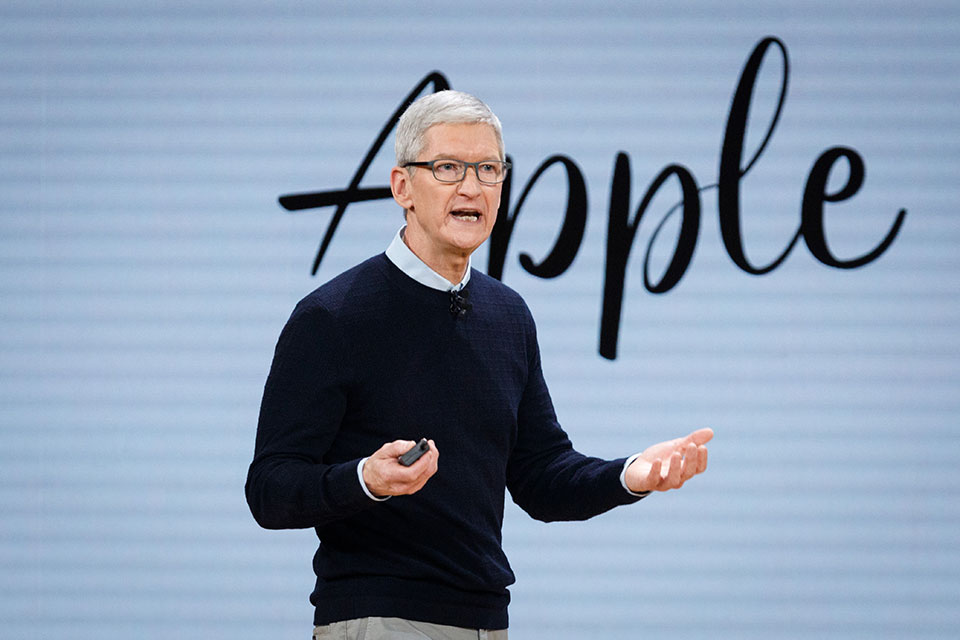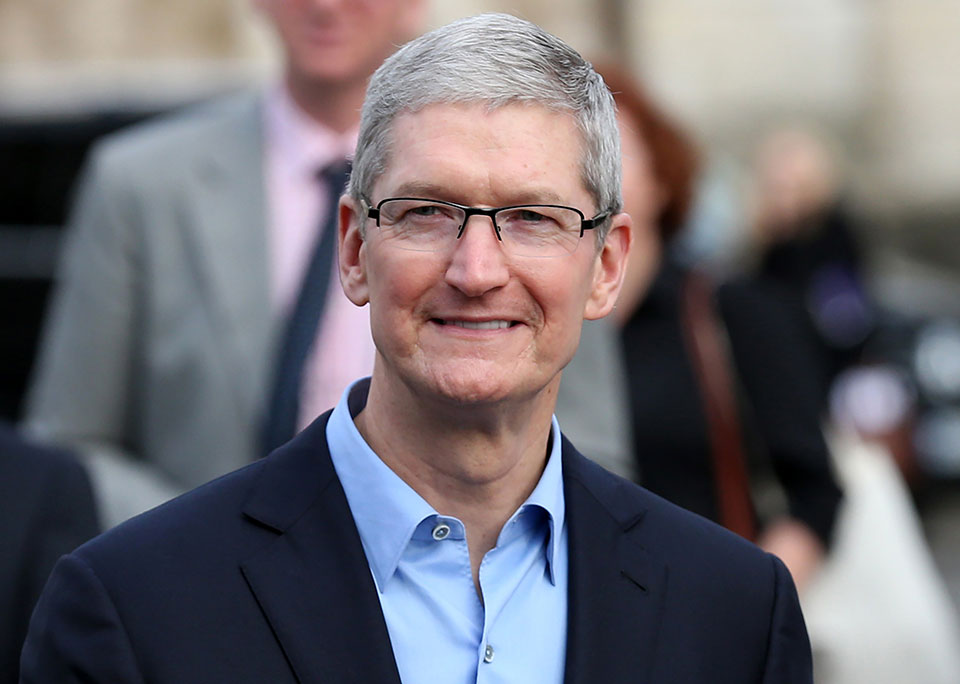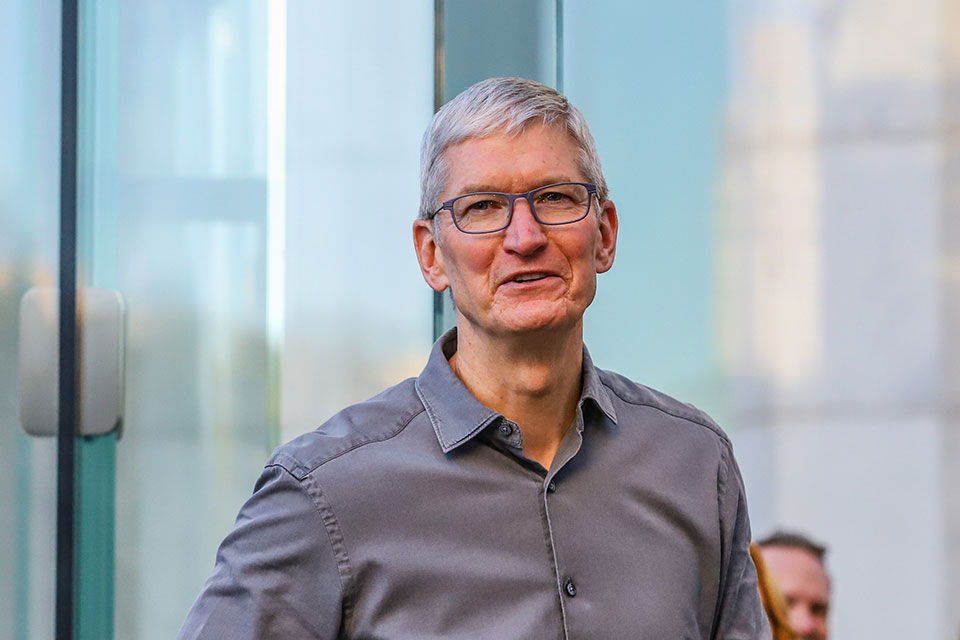What Makes Apple’s Tim Cook the Most Influential CEO

Apple’s Tim Cook is arguably the most influential person and CEO worldwide currently. Cook regularly features in various global rankings for the most influential people and CEOs. One such ranking is TIME’s 2021 influential persons, which ranked Cook in the “Titans” category alongside other influential people such as Tom Brady, Simone Biles, Shonda Rhimes, Swizz Beats, and Timbaland. Cook has headed Apple as the Chief Executive Officer (CEO) since 2011. Before his promotion to the position of the company’s CEO, Cook worked in the company as the Chief Operating Officer, where he oversaw the company’s worldwide sales and operations, which included end-to-end management of the company’s sales activities, supply chain, services, and support (Forbes.com, 2021).
Besides Apple, Cook has also held plum executive positions elsewhere. For example, before joining Apple in 1998, he was the Vice President of Corporate Materials for Compaq. While in the position, Cook oversaw the management and procurement of all Compaq’s products (Apple.com, 2021).
Therefore, Cook has had a long and successful career as a business executive. Since the debut of his CEO career at Apple, Cook has led Apple’s growth into a behemoth by all imaginable and verifiable metrics. For example, Apple’s profits have more than tripled from $ 6billion in 2011 to $28.8 billion in the first quarter of 2021. This paper will seek to explain what makes Cook the most influential and successful CEO.
Cook is a man of excellent judgment and has the capacity to think strategically and tactically (Knight, 2021). These are the words of Nike’s Co-founder Phil Knight when describing Cook. Knight wrote Cook’s profile for TIME for the award of one of the most influential people of 2021 when he used the statement to describe Cook.
The statement reflects one of the reasons why Cook is one of the most influential people and successful CEO currently. The task of heading a big company such as Apple is complex and requires the CEO to have the capacity to think tactically and strategically for them to make excellent judgments on complex matters that the company deals with daily. Fortunately for Cook, he bears this quality and uses it as a major pillar in his company’s leadership.
The Covid-19 pandemic was one of the instances where Cook demonstrated strategic and tactical thinking by guiding Apple through the pandemic. For example, Apple.com (2020) states that Cook led Apple to partner with Google on the Covid-19 contact tracing initiative that would lead more people to use Apple and Google products and help manage the Covid-19 pandemic.
In his statement description of Cook, Knight also terms him as compassionate towards other people (Knight, 2021). It is due to his compassionate nature that Cook adopts a democratic leadership style. Business leaders who embrace a democratic leadership style are often more successful and influential in their careers as they get to listen more to employees and customers (Rahbi, Khalid, & Khan, 2017).
Through his democratic leadership style, Cook focuses more on having a positive relationship with the company’s employees; hence the employees feel appreciated and motivated. Cook also makes sure to listen to employees’ concerns and puts in place mechanisms to ensure that the company addresses their welfare. This factor influences Apple’s employees to be compassionate about solving other people’s problems. Cook is also passionate about middle-income and low-income earners; hence he has led apple in making price-friendly products; thus, Apple products are getting more affordable. Such products include the iPod.
For many years, especially during the Steve Jobs era, Apple cultivated an expensive brand image; hence many people thought it impossible to own its products. However, Cook is gradually leading the company into shedding the “expensive brand” image and cultivating an alternative image of affordability (Leswing, 2017). This well-thought-out strategy stems from Cook’s compassion for people who do not have a high income and has subsequently helped in raising Apple product sales significantly.
Cook’s ability to trust other people who are around him in Apple has also significantly contributed to his success and influential status (Actualidadiphone.com, 2021). Cook is fortunate to have a team of strong and well-qualified top executives at Apple, who help in decision-making and also share in the workload that most people would shoulder alone if they were in Cook’s position.
However, Cook often allows his top executives to take the lead, as he understands that they have vast experiences, are innovative, and have brilliant ideas. The result is that these top executives have helped Cook to build Apple into a huge company making some of the highest sales worldwide and also having a global presence, where its products are available in most countries worldwide. According to Bligh (2017), trust is a fundamental component of business leadership, adding that business leaders who have the capability to trust others often make successful and influential leaders.
Business leaders need to understand that they cannot do everything for their company and should allow more people to take a more active role in developing ideas for the company and giving suggestions about the company’s leadership. Cook understands this well and prefers to allow his top executives to help in many leadership decisions, which gives the company a chance to develop different ideas on product development and service delivery.
Genuine appreciation of diversity is another aspect that has significantly contributed to Cook’s most influential and successful CEO status. Cook understands that Apple is a company that is primarily driven by innovation. As such, it requires many different-minded and unique individuals who are competent enough to help create its future. He insists on having people who have the diversity of thought and style work for Apple, as they have the capacity to offer different insights (Holtzblatt, & Marsden, 2018).
Cook also encourages Apple’s employees to bring the best out of themselves by urging them to think critically and strategically. These preferences have contributed to making Cook the most influential and successful CEO currently, as they help him influence his employees and the executives who work under him to be innovative in ideas and think differently to the company’s advantage. Cook also appreciates diversity by ensuring that Apple hires people based on qualifications and merit, hence people from any gender, racial or national background have a chance to work for Apple and showcase their innovative skills, which has enabled the company to tap a lot of talent worldwide, fuelling its success in innovative technology (Holtzblatt, & Marsden, 2018). Appreciating people from all walks of life also upholds Cook’s personal image as a progressive individual, hence building his most influential and successful CEO status.
Upon his assumption of Apple’s top leadership, Cook had the option to continue Steve Job’s legacy of an autocratic leadership style. However, Cook decided to build on his strengths instead of following Job’s footsteps fully. One of his strengths is building teamwork and cooperation among employees from the basic levels to the highest levels in the company.
This factor has also played a significant role in making Cook a highly successful and most influential CEO. Cook takes an active role in influencing Apple’s employees to work in teams and cooperate among themselves for the best outcomes in pursuing the company goals and objectives. Teamwork and cooperation enable Apple’s employees to work faster and encourage consensus building, especially among the high-level employees and top executives, allowing the employees to engage in consented decision-making (Tasnim, 2018).
Successful and influential CEO and business leaders encourage teamwork and cooperation among the employees, which facilitates communication between the employees and the top executives by fostering an atmosphere of mutual support (Holt, Hall, & Gilley, 2018). It also reduces the desire and needs for employees to compete in their work hence significantly reducing workplace conflict. Many of Apple’s employees see Cook as an influential and successful CEO due to his insistence on teamwork and cooperation among all levels of employees.
Cook’s style of engagement with stakeholders is also a factor that plays a critical role in making him a successful and most influential CEO. Cook understands that a company’s success and his success as CEO largely depend on how he engages with the company’s stakeholders. Apple has several stakeholders who include employees, customers, local communities, suppliers, and governments. Cook places a keen interest and insight into the priorities of Apple’s stakeholders and has an unrelenting focus on delivering the company’s short-term and long-term goals and objectives in reference to the interests of the company stakeholders.
Successful and influential CEOs hold in high regard the interests of their company’s stakeholders and focus on fulfilling them in every possible way (Kujala & Korhonen, 2017). Cook started his career as CEO of Apple by developing an astute understanding of the motivations and needs of the company’s stakeholders and then aligned them around the goal of value creation.
Before making any major decisions concerning the company’s operations, Cook creates a stakeholder map of the key stakeholders who need to be on board before executing the decision. He also identifies the concerns aired by the detractors of any major projects undertaken by the company and thinks on how to address such concerns as effectively as possible. Cook often makes it clear to stakeholders such as employees and customers that they are an important part of the company’s processes and that they are also part of the company’s wins, hence making them feel appreciated by the company.
Jobs, Cook’s predecessor, was a revered CEO. Many people felt that Cook would have a difficult time filling Job’s shoes. However, Cook learned to adapt to new circumstances proactively, largely contributing to his successful and most influential CEO status. Adapting to new circumstances proactively is a major strength for Cook. It has enabled him to lead Apple as a business leader and a Fortune 500 company in a rapidly changing technological innovation business environment.
When Cook took over Apple’s leadership as CEO to replace Jobs, Cook said that people should not expect him to be a second Jobs but should expect him to be the first Cooks. This statement showed that Cooks was aware of his ability to adapt to new circumstances proactively and would chatter a different leadership and managerial path from Jobs. He has since showcased his ability to adapt to new circumstances proactively. For example, during the Covid-19 pandemic, Cook led Apple to adapt to the pandemic’s circumstances, such as by developing ways through which employees would work from remote environments to comply with Covid-19 containment measures (Kerrissey, & Edmondson, 2020).
Adapting to new circumstances proactively has also made Cook a successful and most influential CEO as he has led Apple into embracing sustainability in developing its products. For example, Apple.com. (n.d) states that the company embraces clean energy, and some of its products, such as Siri, run on clean energy.
Winding up on the list of things that make Cooks a successful and the most influential CEO is that he delivers reliably. Cook has a track record of delivering reliably and sometimes more than expected. He has a series of achievements at Apple which cements his ability to deliver reliably. For example, since the debut of his career as Apple’s CEO, Cook has overseen the improvement of existing Apple products such as Siri, the iPad mini, the iPhone series from iPhone 4S to the current iPhone 13, the Apple watch, and the M1 microprocessor for Macintosh computers (Kim, 2020).
Cook has also introduced a culture of reliability at Apple. He urges employees to be reliable, arguing that reliable people are more likely to be hired due to their ability to deliver. Reliability is a critical component of business operation. Cook focuses on setting realistic but ambitious expectations without necessarily jumping into execution at first. For example, after being named Apple’s CEO, Cook took a span of two years innovating on Apple products that were already in existence instead of introducing new products.
Later he started introducing new products, which have made major impressions in the market. Cook’s reliable delivery is attributable to his insistence on digging into budgets and plans, engaging with customers and employees to gauge and understand their expectations, and engaging with the board members. He also assesses the goings-on in the company and in the technological innovation industry to develop a personal point of view on what can be delivered realistically. He aligns his working goals and expectations with that point of view.
In conclusion, Cook is a business executive and CEO per excellence. He has mastered the art of leading Apple into a giant global company and has grown into a titan, as described by TIME. Under the stewardship of Cook, Apple has growth and development have more than doubled since 2011.
His success is attributable to his ability to make excellent judgment, a compassionate nature, ability to trust other people, genuine appreciation of diversity, building teamwork and cooperation among employees, the right engagement with stakeholders, adapting to new circumstances proactively, and ability to deliver reliably. Cook’s success at the helm of Apple’s leadership leaves no doubt that he is indeed a successful and the most influential CEO. As he continues leading Apple towards greater heights in the technological innovation industry, Cook is expected to continue being a successful and the most influential CEO.
References
Actualidadiphone.com. (2021). https://www.actualidadiphone.com/en/tim-cook-nombrado-mejor-lider-del-mundo/
Apple.com. (2020). Apple and Google partner on Covid-19 contact tracing technology. https://www.apple.com/ke/newsroom/2020/04/apple-and-google-partner-on-covid-19-contact-tracing-technology/
Apple.com. (2021). Apple Leadership. https://www.apple.com/ke/leadership/tim-cook/
Apple.com. (n.d). We are Carbon Neutral. https://www.apple.com/environment/
Bligh, M. C. (2017). Leadership and trust. In Leadership today (pp. 21-42). Springer, Cham.
Forbes.com. (2021). Tim Cook. https://www.forbes.com/profile/tim-cook/?sh=270de3613ea4
Hollister, S. (2021). Tim Cook’s Apple, Ten Years Later. https://www.theverge.com/22639629/tim-cook-apple-ten-years-decade-steve-jobs-legacy
Holt, S., Hall, A., & Gilley, A. (2018). Essential components of leadership development programs. Journal of Managerial Issues, 30(2), 214-153.
Holtzblatt, K., & Marsden, N. (2018, April). Designathon to support women in tech. In Extended Abstracts of the 2018 CHI Conference on Human Factors in Computing Systems (pp. 1-4).
Kim, H. (2020). Comparison of Strategic Leadership: Steve Jobs and Tim Cook. Business and Management Studies, 6(3), 17-25.
Knight, P. (2021). Tim Cook. https://time.com/collection/100-most-influential-people-2021/6096062/tim-cook/
Kujala, J., & Korhonen, A. (2017). Value-creating stakeholder relationships in the context of CSR. In Stakeholder engagement: Clinical research cases (pp. 63-85). Springer, Cham.
Leswing, K. (2017). Apple is abandoning its expensive image. https://www.businessinsider.com/apple-products-are-getting-more-affordable-2017-3?r=US&IR=T
Rahbi, D. A., Khalid, K., & Khan, M. (2017). The effects of leadership styles on team motivation. Academy of Strategic Management Journal, 16(3).
Tasnim, M. (2018). An Organizational Analysis on Apple. European Journal of Business and Management, 10(11).
Bring the best of the CEOWORLD magazine's global journalism to audiences in the United States and around the world. - Add CEOWORLD magazine to your Google News feed.
Follow CEOWORLD magazine headlines on: Google News, LinkedIn, Twitter, and Facebook.
Copyright 2025 The CEOWORLD magazine. All rights reserved. This material (and any extract from it) must not be copied, redistributed or placed on any website, without CEOWORLD magazine' prior written consent. For media queries, please contact: info@ceoworld.biz










